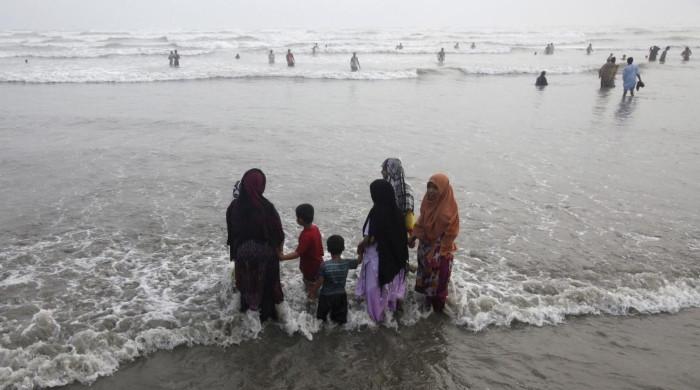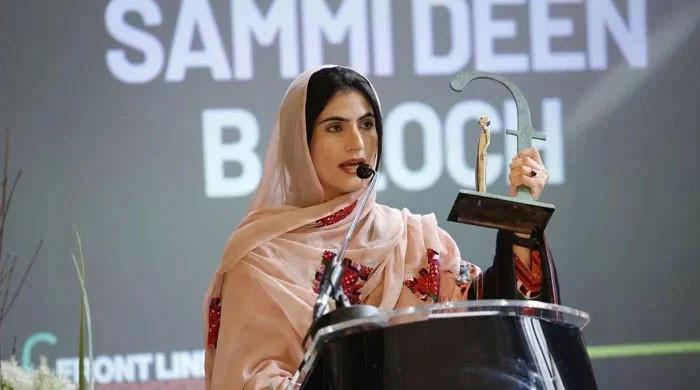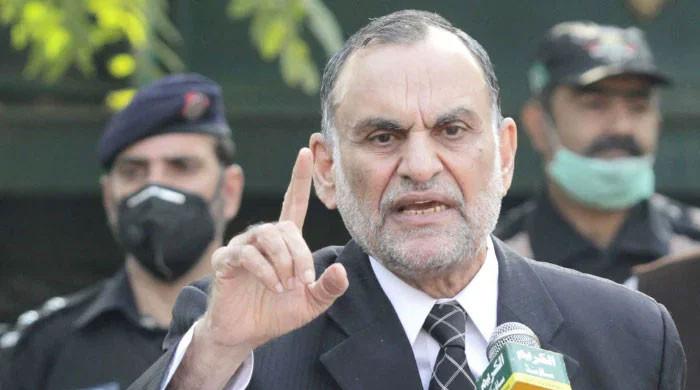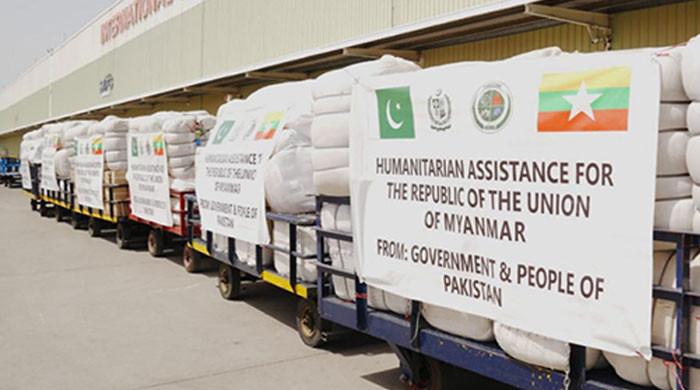Pakistan condemns 'systematic Islamophobic campaign' after resurgence of blasphemous caricatures
Pakistan alarmed at "highly disturbing statements by certain politicians justifying such heinous acts"
October 25, 2020
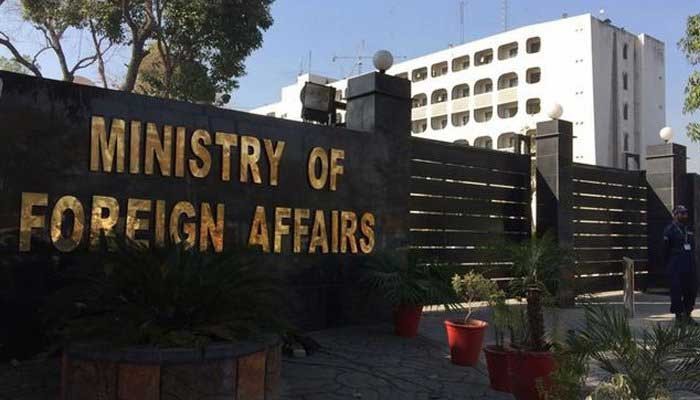
Pakistan on Sunday condemned "in the strongest manner" the "systematic resurgence" of blasphemous caricatures of the Holy Prophet (P.B.U.H) and desecration of the Holy Quran by "certain irresponsible elements" in some developed countries.
A statement by the Foreign Office said: "We are further alarmed at highly disturbing statements by certain politicians justifying such heinous acts under the garb of freedom of expression and equating Islam with terrorism, for narrow electoral and political gains."
According to the statement, international human rights laws, while providing the right to freedom of expression, also underscore the importance of "special duties and responsibilities" while exercising this right.
"The dissemination of racist ideas, defamation and ridiculing of other religions, denigration of religious personalities, hate speech, and incitement to violence are not allowed expressions of this fundamental freedom," the FO statement stressed.
It highlighted that such "illegal and Islamophobic acts" only lead to the fanning of hatred between people of different faiths and create "hostility and confrontation".
The statement said that this in turn becomes "the very basis of horrendous terrorist acts like Christ Church, thereby imperiling future prospects of peace and harmony among civilizations".
It also called into question the "double standards" shown when there are anti-blasphemy and criminal laws for "sensitive issues such as denial of Holocaust" but then justification is sought to be provided "by a few politicians in some Western countries" when it comes to insulting sentiments of Muslims.
"Such justifications seriously erode their human rights credentials," the statement noted.
"Pakistan has always supported and continues to lead international efforts for combating intolerance, discrimination and violence on the basis of religion or belief," it stated.
The FO said that Pakistan, both in its national capacity, as well as being part of the Organisation of Islamic Cooperation, has "advocated arduously for the alliance of civilizations".
"Developing mutual understanding and respect for all religions, faiths and beliefs" is of utmost importance to Pakistan, it added.
"We unequivocally condemn all acts of violence on the basis of religion or belief."
The statement sought to remind the international community that Prime Minister Imran Khan, in his address at the 75th UN General Assembly session "highlighted the recent incidents of Islamophobia and such unlawful provocations and urged the international community to take all necessary steps to universally outlaw willful provocations and incitement to hate and violence".
It also reminded world leaders that a proposal was made by PM Imran Khan to declare an International Day to Combat Islamophobia.
"At a time of rising racism and populism, the international community must show a common resolve against xenophobia, intolerance, stigmatization and incitement to violence on the basis of religion or belief," the FO urged in its statement.
"It is necessary to work together for peaceful co-existence as well as social and inter-faith harmony," it said.
PM Imran Khan slams French President Emmanuel Macron
The statement followed a series of tweets by PM Imran Khan in which he slammed French President Emmanuel Macron over his anti-Muslim attitude, criticising him for hurting the sentiments of millions of Muslims around the world.
The French president is being criticised with protests breaking out in several cities across the world after he accused Muslims of separatism and vowed not to give up cartoons depicting the Holy Prophet Muhammad (PBUH).
His comments came in response to the beheading of a teacher, Samuel Paty, a 47-year-old teacher, who was attacked on his way home from the junior high school where he taught in Conflans-Sainte-Honorine, 40 kilometres northwest of Paris.
The teacher had shown cartoons disrespecting Holy Prophet Muhammad (PBUH), according to media reports.
In a series of tweets on Saturday, the prime minister, while presenting examples of the iconic leader Nelson Mandela, said that this is a time when President Macron could have put the healing touch and denied space to extremists rather than "creating further polarisation and marginalisation that inevitably leads to radicalisation".





